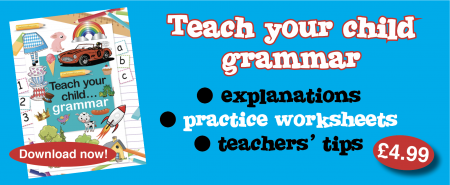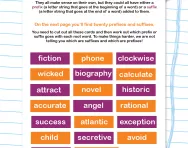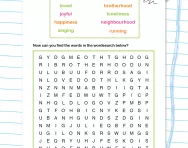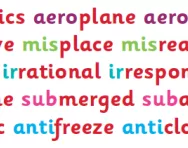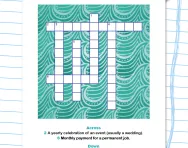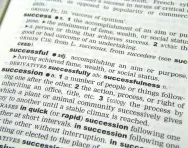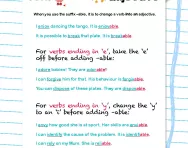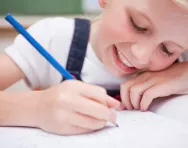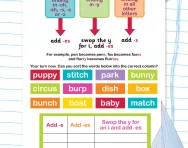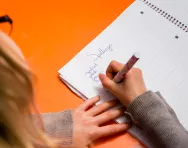Important update from TheSchoolRun
For the past 13 years, TheSchoolRun has been run by a small team of mums working from home, dedicated to providing quality educational resources to primary school parents. Unfortunately, rising supplier costs and falling revenue have made it impossible for us to continue operating, and we’ve had to make the difficult decision to close. The good news: We’ve arranged for another educational provider to take over many of our resources. These will be hosted on a new portal, where the content will be updated and expanded to support your child’s learning.
What this means for subscribers:
- Your subscription is still active, and for now, you can keep using the website as normal — just log in with your usual details to access all our articles and resources*.
- In a few months, all resources will move to the new portal. You’ll continue to have access there until your subscription ends. We’ll send you full details nearer the time.
- As a thank you for your support, we’ll also be sending you 16 primary school eBooks (worth £108.84) to download and keep.
A few changes to be aware of:
- The Learning Journey weekly email has ended, but your child’s plan will still be updated on your dashboard each Monday. Just log in to see the recommended worksheets.
- The 11+ weekly emails have now ended. We sent you all the remaining emails in the series at the end of March — please check your inbox (and spam folder) if you haven’t seen them. You can also follow the full programme here: 11+ Learning Journey.
If you have any questions, please contact us at [email protected]. Thank you for being part of our journey it’s been a privilege to support your family’s learning.
*If you need to reset your password, it will still work as usual. Please check your spam folder if the reset email doesn’t appear in your inbox.
What is a suffix?
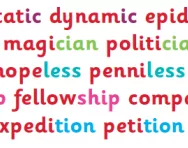
What is a suffix?
A suffix is a string of letters that go at the end of a root word, changing or adding to its meaning. Suffixes can show if a word is a noun, an adjective, an adverb or a verb.
The suffixes -er and -est are also used to form the comparative and superlative forms of adjectives and some adverbs.
Prefixes are groups of letters added to the beginning of a word.
What suffixes will your child learn?
Children will be taught about suffixes at different stages during their time in KS1 and KS2.
| Suffix | Example word | Explanation | |
| Year 1 | -ing -ed -er -est | jumping jumped grander grandest | In Year 1, children learn about suffixes that are added without changing the root word. |
| Year 2 | -ied -ier -ing -ing -ed -ed -er -est -ment -ness -ful -ly | copied copier patting hiking patted hiked sadder saddest enjoyment sadness playful badly | Children learn that to add some suffixes, you have to change the root word. For example, 'pat' has to have another 't' added before the suffix '-ed' can be added. 'Copy' has to have the 'y' removed before '-ied' is added. |
| Year 3 and 4 | -ation -ly -ous | information merrily enormous | Children continue to learn that some suffixes change the root word, for example, happy becomes happily, and gentle because gently. |
| Year 5 | -ology -graph -port | archaeology autograph transport | Children learn that 'ology' means 'study,' 'graph' means 'to write' and 'port' means 'carry.' |
| Year 6 | -ing -ed | referring referred | Sometimes a letter has to be added before a suffix can be added. |
Why are children taught suffixes?
Children are taught the meanings of different suffixes (for example, -ette means 'small'). Then they will look at words with these suffixes and how that meaning is incorporated into the word, for example: a cigarette is a small version of a cigar, a maisonette is smaller than a house (they may be told that 'maison' is French for house). This 'breaking down' of words helps children to understand the meaning of other words and to think carefully about how these words are spelled.
Teaching children words with suffixes means that they are broadening their vocabulary by learning new words and their meanings, which they can then incorporate into their writing. It also means that they are learning the spellings of new words.
Verb, noun, adjective and adverb suffixes
Teaching groups of words with one suffix can be a good way of teaching children about adjectives, verbs and adverbs.
Common verb suffixes are -ed and -ing.
Common noun suffixes are -ness and -ment.
Common adjective suffixes are -al and -able.
Common adverb suffixes are -ly and -fully.
Children may also be taught about comparatives and superlatives and how they are formed using suffixes (for example, small, smaller and smallest).
Suffix spelling rules
Adding a suffix to some words changes the spelling of the new word. Children are taught the rules attached to certain suffixes.
For example:
- If it ends in a 'y' like happy, the 'y' is taken off and -ier is added.
- If it is a word with a short vowel ending in one consonant (hot, sad, fit), the last word is doubled before -er is added: hotter, sadder, fitter.
How do children learn about suffixes?
It is quite common for a teacher to choose one particular suffix and then give a list of spellings with that suffix for the children to learn.
Other ways to encourage the learning of words with suffixes are:
- The process of Look, Cover, Write, Check, where a child looks at a word, covers it over, writes it from memory and then looks back at the original word to check they have got it right.
- Worksheets where a words needs to be matched with a definition.
- 'Fill the gap' worksheets, where a few sentences are given, each missing a certain word with a suffix. A list of these words with suffixes is given in a box on the sheet, and children need to decide which word goes where.
- Asking children to find words with a certain suffix and find out their meanings (using a dictionary).
To find worksheets and activities to help your child practise suffixes look through the selection of spelling worksheets on the site.

